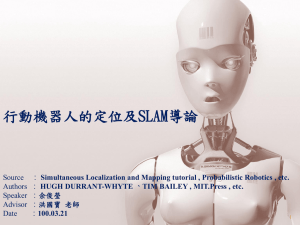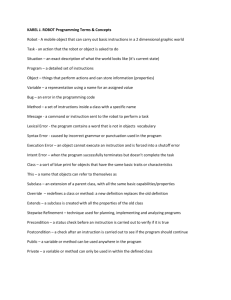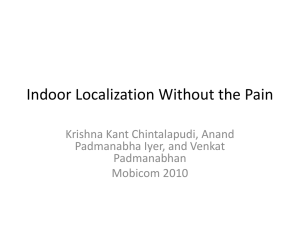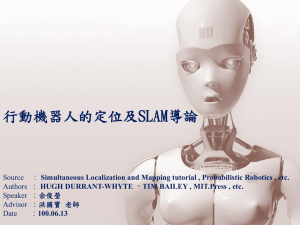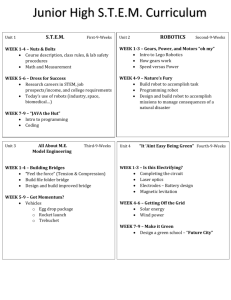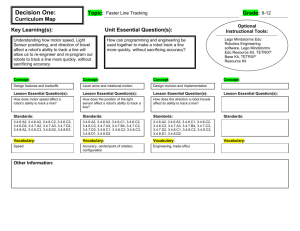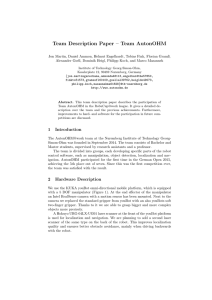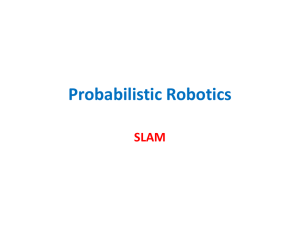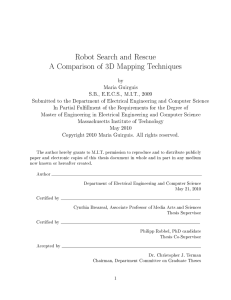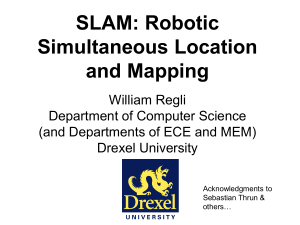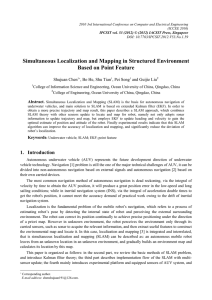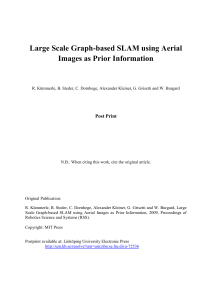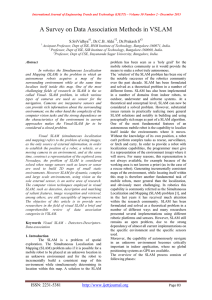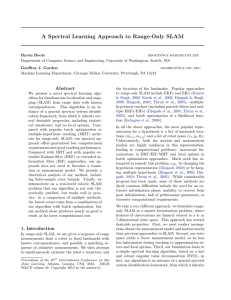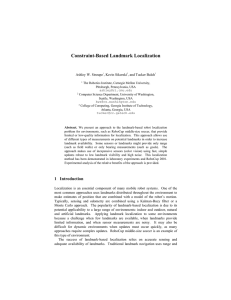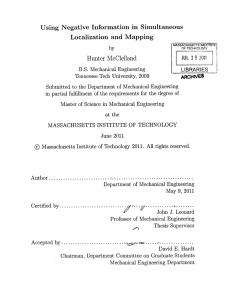File - techlav
advertisement
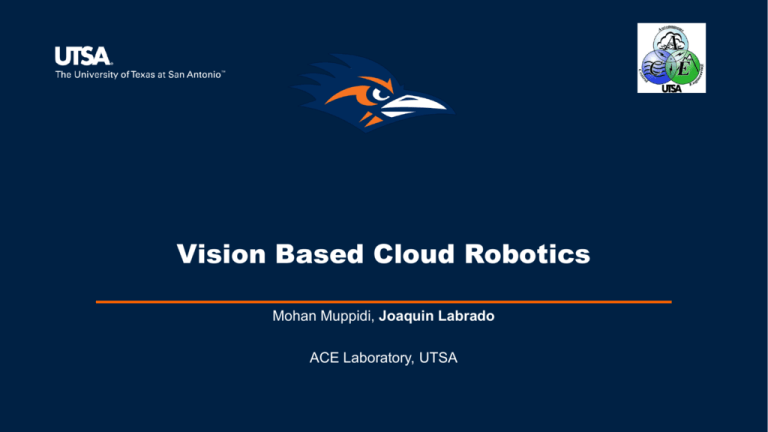
Vision Based Cloud Robotics Mohan Muppidi, Joaquin Labrado ACE Laboratory, UTSA Overview (cntd..) Cloud Start Robot 2 Introduction Two questions help humans navigate their environment 1. “What does the world around me look like?” 2. “Where am I in this world” This problem of navigation is often solved with Simultaneous Localization And Mapping (SLAM) If odometry and localization are based on image data then it is called Visual SLAM or VSLAM in short. 3 Introduction (cntd..) Applications 1. Personal Robots 2. Vacuum Cleaning Robots 3. Assistive robots 4. Robotic guides in Museums 5. Assistive robots in Libraries Dyson 360 eye navigation 6. Unmanned Aerial Vehicles Asimo robot Jibo robot Nao robot 4 Dyson 360 eye Container based SLAM 1. Humans easily remember complex objects (such as trees, signboards or shops) as landmarks. 2. Robot remembering or storing such complex objects is not only computationally expensive but also time consuming. 3. Similar to how humans navigate their environment this research uses images to also identify landmarks. 4. World is divided into a grid with 1x1 images. 5. For ease of localization these blocks are grouped to follow a convention blocks. Each grid is treated as a container with landmark 5 Container based SLAM (cntd..) Odometry of robot can be determined by 1. IMU 2. Encoders 3. Visual Odometry etc. Input Image Images are treated as landmarks. Each container has 8 landmark images covering the 360⁰ view of robot Naming convention is followed so that coordinates of that container can be determined from the name itself Odometry stamp and direction stamp Save it in database based on convention 6 Container based SLAM (cont..) Level 0 360⁰ robot view divided into 8 segments Illustration of levels in landmark database 7 Localization • Localization • “Where am I in this world ?” • Localization helps robot to know its current location in an environment with respect to base frame • Advantage of the localization algorithm is that the landmark database created using Container based SLAM can be used to localize any robot • Image feature matching based localization 8 Experiment • The experiment was conducted on the 2nd floor hallway of UTSA Bio Sciences and Engineering building. The experiment started and ended at same location with the hallway as shown below 9 Landmark Database created using SLAM 10 Localization of Robot based on previously built database 11 CLOUD BASED LOCALIZATION • Limitations of Localization Algorithm 1. The robot has to be in immediate or next neighborhood of the previous location before next sample is taken 2. If not in this area then full database has to be searched, Time consuming and slows down the robot. Overcoming the Limitations 1. Performing parallel search 2. Offloading some computing from on board computer 12 X-1,Y+1 X,Y+1 X+1,Y+1 X-1,Y X,Y X+1,Y X-1,Y-1 X,Y-1 X+1,Y-1 Illustration of cloud based parallel processing using ROS 13 Time comparison between results with parallel algorithm and serial algorithms Serial Algorithm results Parallel Algorithm results 8.23 seconds per 100 frames Without any manipulation such as resizing or cropping on Database images 1.84 seconds per 100 frames Without any manipulation such as resizing or cropping on database images 77% 14 Quadrotors • Fly through the use of 4 motors • Many different applications • Swarms • Eye in the Sky Quadrotors • In the Lab • ARDrone 2.0 • Parrot Bebop • Erle Copter Formation Control • Multiple UAS's flying and moving as a group • Useful for localization • SAR applications Formation Control in the Lab • 4 total quadrotors in a formation • Use of cameras to keep formations • Implement SLAM 3D Depth Cameras • LiDAR • RGB-D data 3D Depth Cameras • Xbox Kinect • Asus XTION PRO Use of the Xbox Kinect • Point clouds Use of the Xbox Kinect • Depth Data for controllers
